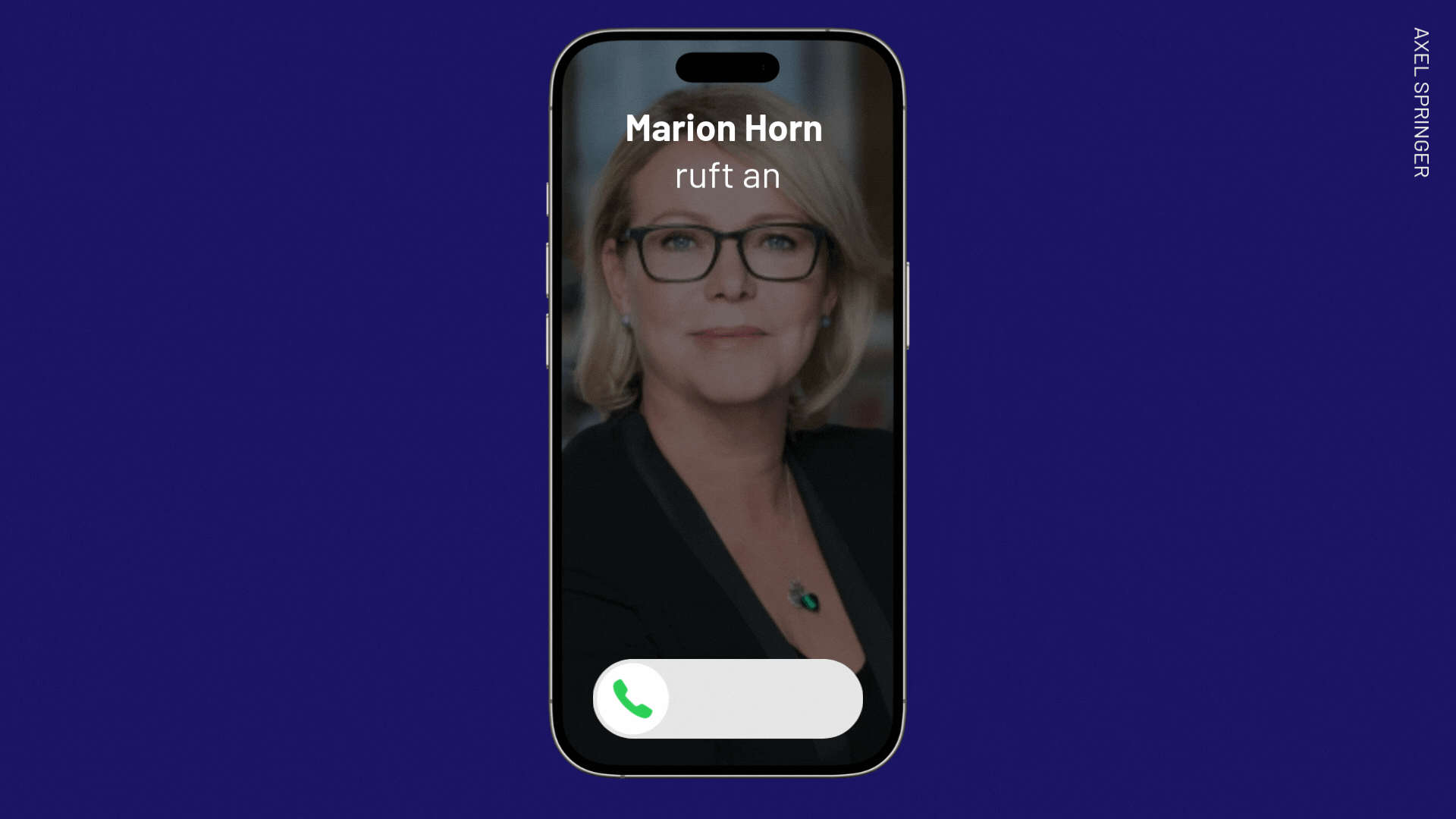Translated from German into English and edited by Elena Buscher
The internal crisis communications at Axel Springer are going into the next round: After CEO Mathias Doepfner apologized to Bild employees and those affected by Julian Reichelt’s abuse of power for the first time on Friday, October 22nd 2021, an extensive Q&A followed on Monday, October 24th 2021. Over one and a half hours, Doepfner answered questions from employees together with board member Jan Bayer and the entire Bild management team.
The executive group gathered together and stood side by side around bar tables in red in an office room in the Axel Springer building. Besides Mathias Doepfner and Jan Bayer, the three editors-in-chief Alexandra Wuerzbach, Claus Strunz and Johannes Boie were also present, as well as the two managing directors Carolin Hulshoff-Pol and Claudius Senst.
Medieninsider outlines the most important statements below.
Bild now desires a “culture of respect”
The aim of the gathering on October 22nd was not only to demonstrate transparency, but also to foreshadow the future at Bild for the employees. Again and again, the management appealed to the employees to keep looking into the future for what lies ahead. Managing Director Claudius Senst:
“Bild should radiate brightly externally and glow brightly internally again.”
CEO Mathias Doepfner, who began by apologizing once again for the strains of the past weeks (“I am very sorry that you have not been spared [of the stresses and strains over the recent months]”), also emphasized once again:
“We have to utilize this terrible crisis in a positive way.”
“Respect”, a term with which the party of social democrats has already celebrated certain successes this year, has now also become a firmly established catchword at Bild. Alexandra Wuerzbach, editor of Bild am Sonntag:
“The word respect has found its way back into this house.”
Claus Strunz, editor for Bild’s TV Section, commented:
“Respect is the key word.”
Mathias Doepfner on Bild’s corporate culture :
“It’s about respect and freedom of fear [to express yourself openly and fully in the workplace].”
Boies principles
The new credo was also taken up by Johannes Boie. One week after his surprising inauguration, the new head of the editorial board at Bild introduced four new guiding principles:
1: Strengthen the culture of respect. The editor-in-chief immediately announced a reorganization of the executive office area on the 16th floor. The cultural change should also be reflected architecturally, Boie said. This means that the big, old editor-in-chief’s office, which still breathes the spirit of the predecessors Kai Diekmann and Julian Reichelt, ought soon to be forgotten.
2: Strengthen journalistic excellence. From now on, the focus will be on performance. Boie’s goal:
“I want 80 million Germans to like us.”
3: Story first. The focus should always be on the story, not on the platform it is rolled out. The products (print, digital, TV) are to be treated equally again, conferences are to be fundamentally geared to the content. This means that Boie, like Doepfner before him, is now rejecting the “TV first” approach of Mr. Reichelt.
4: Revitalize tabloid journalism. Boie:
“We have to trigger positive emotions, so that people also laugh when they open the newspaper.”
In which the new editor-in-chief, who according to staff, appeared self-confident and decisive, sees no reason for readjustment:
“In terms of political content, I see little need for correction.”
“Great toughness is also part of it. Anyone who thinks we don’t investigate thoroughly and will no longer cover misconduct by politicians is mistaken.”
Nobody has to be afraid of Bild except the “powerful 5.000”, Boie continued. Mr. Doepfner added:
“We are proud of the concept of tabloid journalism. What we have to work on are internal, cultural grievances.”
Nevertheless — although Julian Reichelt had already vowed to do better here— there are also conciliatory tones. Claus Strunz:
“I think Bild as an overall brand can improve in the sense that we are not always against everything. If you’re always against something, you have to say what you’re in favor of, too. I have resolved to pay attention to this when aligning the [Bild] TV program in the future.”
“The dual leadership has failed”
“Respect” was also an issue when dealing with Alexandra Wuerzbach. The previously appointed co-chief editor alongside Reichelt now finds herself under Johannes Boie and next to Claus Strunz. This surprised many within the editorial team. Doepfner alluding to the former dual leadership Reichelt/Tanit Koch said:
“We didn’t want to try a third time, which didn’t work twice previously.”
Alexandra Wuerzbach also admitted:
“The dual leadership failed, that’s a fact. The people here know the reasons [behind the failure].”
Doepfner justifies the fact that Boie, rather than Wuerzbach, has taken over as editor-in-chief as follows:
“It should be someone from outside [the organization of Bild].”
And further:
“My forecast is: In this structure Alexandra Wuerzbach will have more room to provide and execute creative impulses and will have more leverage than before in the dual leadership model.”
There were still many questions about Reichelt as well as about the reporting on Axel Springer, which the board answered only partially Bayer on the question of why Julian Reichelt had not been recalled earlier:
“With the knowledge we had at the time, we still believe today that we made the right decision then.”
Boie promises: No more boy groups
The way Axel Springer is portrayed at the moment is “not okay”, Jan Bayer said. Asked whether Reichelt was ultimately only recalled because of the New York Times’ reporting and the pressure it brought, Bayer said:
“That’s nonsense.”
And continues:
“We did not act because of the New York Times, we received further indications in the course of another investigation and acted because of that. To act solely because of the reporting in the New York Times would have been a bit weak.”
Johannes Boie was asked how he intends to prevent “boy groups” [another term for the “old boys club”] from continuing to call the shots in the future. For background: In a recent portrait of the new editor-in-chief Der Spiegelassociated Boie with such a boy group. His response:
“I will not allow it. I have never worked like that, I will never work like that. That’s not my [leadership] style and it would not serve me well. You will notice that.”
Criticism of the communication during the Reichelt crisis
Asked if they had done everything right in terms of communication, Bayer said:
“No, we didn’t. But we had a special dynamic, of course.”
Doepfner on his video address shortly before departing for Washington:
“Recording videos at home in the attic at 5 a.m. is not the best idea. But I really wanted to get ahead of this crisis quickly.”
The transported attitude of prosecuting whistleblowers in the compliance process was also reiterated. Doepfner explained that whistleblowers were a crucial part of the culture of openness and therefore had to be backed up. Bayer once again clarified that it had only taken legal action against the publication of anonymous interview transcripts — “as an employer out of a duty of care to protect those involved”. This was not to be understood as an action against whistleblowers.
Fight about new compliance rules: Doepfner gets emotional
Doepfner repeated the statement he made last Friday. He asked himself whether he should not have acted faster to protect victims and Bild employees. At the same time, he defended Bayer’s position that the evidence about Reichelt’s abuses of power had not been sufficient at the time.And then Doepfner suddenly vents his dissatisfaction once again — and lays blame at the feet of the workers’ council:
“What perhaps annoys me most of all is that three years ago we campaigned to have a clear policy in the organization that private relationships must be made public and transparent. That was not implemented at the time. In the end, it failed because of arguments on the part of the employee representatives regarding the protection of personal rights. From today’s point of view, I think that was a mistake, and perhaps I didn’t fight hard enough against all the resistance. Because then we would have been spared the grievances we are experiencing now.”
“I can only hope that we will now really get it right very quickly.”
Doepfner lashed out again against theories that there was also a buddy culture at the [Axel Springer] board level, that personal interests prevailed to cover for Reichelt and therefore nothing was addressed about his alleged abuses of power:
“I have to say, that’s actually a hurtful misunderstanding for me. There is no such thing with me, [the alleged buddy culture] there never has been, there never will be. We just try to do it well, but sometimes we just don’t do it well enough.”
“Please believe us that all board members want to do well for this company, to decide well for Bild. And that this is sometimes harder than it appears from distance.”
“Nobody has to be afraid of me. If someone tells me the truth, no one has anything to fear.”
Doepfner: “It’s all a big bunch of crap”, nevertheless no personal consequences
Despite all the speeches of contrition and expressions of trust, however, Doepfner continued to give himself the air being untouchable. Asked whether he would personally draw consequences as CEO if the new Bild boss also fails, he merely said:
“If he fails, there will be a new one. And I believe he [Boie] will not fail.”
The CEO concluded by appealing to the Bild employees once again not to lose focus:
“It is all a big bunch of crap and I know what’s going on with you guys.”
But:
“Just try to focus fully on surprising everyone now with the quality and with the passion with which we make Bild — and with the determination with which we really learn from these bitter experiences now and put ourselves at the forefront of modern work culture.”
In general, the management appealed again and again to the staff’s work ethic, calling to show outsiders what Bild is capable of and for a show of strength — although in the same meeting the issues of overwork, overload and collapse (especially with regard to Bild TV) were admitted. To both insiders and outsiders, certain contradictions could not be ignored on this day.
Doepfner: Good relationship with investor KKR continues
The role of KKR was also briefly discussed. One employee asked about the support of the US investor because of the change in the board of directors that had just taken place. How do the two new KKR CEOs feel about Axel Springer? Doepfner:
“I hardly know them and I don’t know that. But Henry Kravis remains with us on the shareholder committee. He called me and said that nothing will change for Axel Springer. It is the investment that he discussed with us at the beginning and he feels personally absolutely motivated to stay on board and to remain the most important contact for us alongside Johannes Huth.”
The same applies to the most recent events in the company. KKR had supported both the decision to maintain Julian Reichelt as editor-in-chief in spring 2021 and the decision later to relieve him of his duties. Doepfner made it unequivocally clear with regard to Reichelt’s removal:
“Economic considerations were not the first reasons [to remove Reichelt], it was about doing the right thing.”
What remains to be seen is what Julian Reichelt himself thinks about the recent accusations and events. The former editor-in-chief of Bild has been in hiding since his removal — which, according to sources, took place while he was on holiday. In any case, the executive board did not want to answer any questions about Reichelt’s person, his ongoing employment or details of the compliance procedure. Whether Reichelt will address Bild staffers again , Bayer said, is up to him.
We translated the text from German into English, some statements were edited to provide clarity and context





